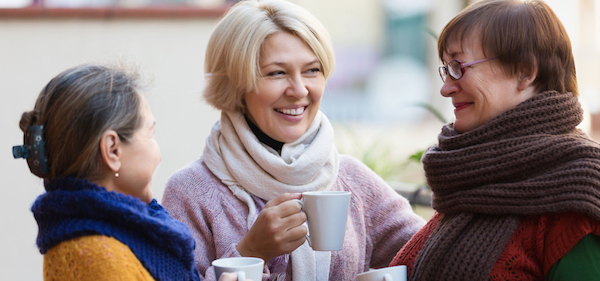Research shows that being socially active protects the brain against the risk of developing dementia. Separate studies have found that:
- women with large social networks (note: this study didn’t include Facebook) have a lower risk of cognitive decline as they age
- loneliness is linked to a more than double the risk of developing dementia
- participating in many different leisure activities builds brain resilience.
So, how do friendships boost your brain and make it resilient to ageing?
Having an active social life naturally involves thinking, feeling, sensing, reasoning and intuition. These mentally stimulating activities increasewhat neuroscientists call your ‘cognitive reserve’, which workout your brain cells, similar to the effect that strength training has on your muscles. In your brain’s case, it’s the formation of new connections, or synapses, between neurons.
With whom you connect matters too. And it’s your friends who count the most, according to ameta-analysis of 148 studies, which included 300,000 people studied over seven years. It found that people with strong social relationships had an increased likelihood of survival than those with weaker social connections.The report also shows that loneliness and lack of social connectionis:
- equivalent to smoking 15 cigarettes a day
- equivalent to being an alcoholic
- more harmful than not exercising
- twice as harmful as obesity.
So, the moral of this story is that your number one prescription for wellbeing (brain and all) is socialising. And if you are in need of some help in the friend-making department, these YourLifeChoices articles may come in handy:
Ten websites to help you make friends

